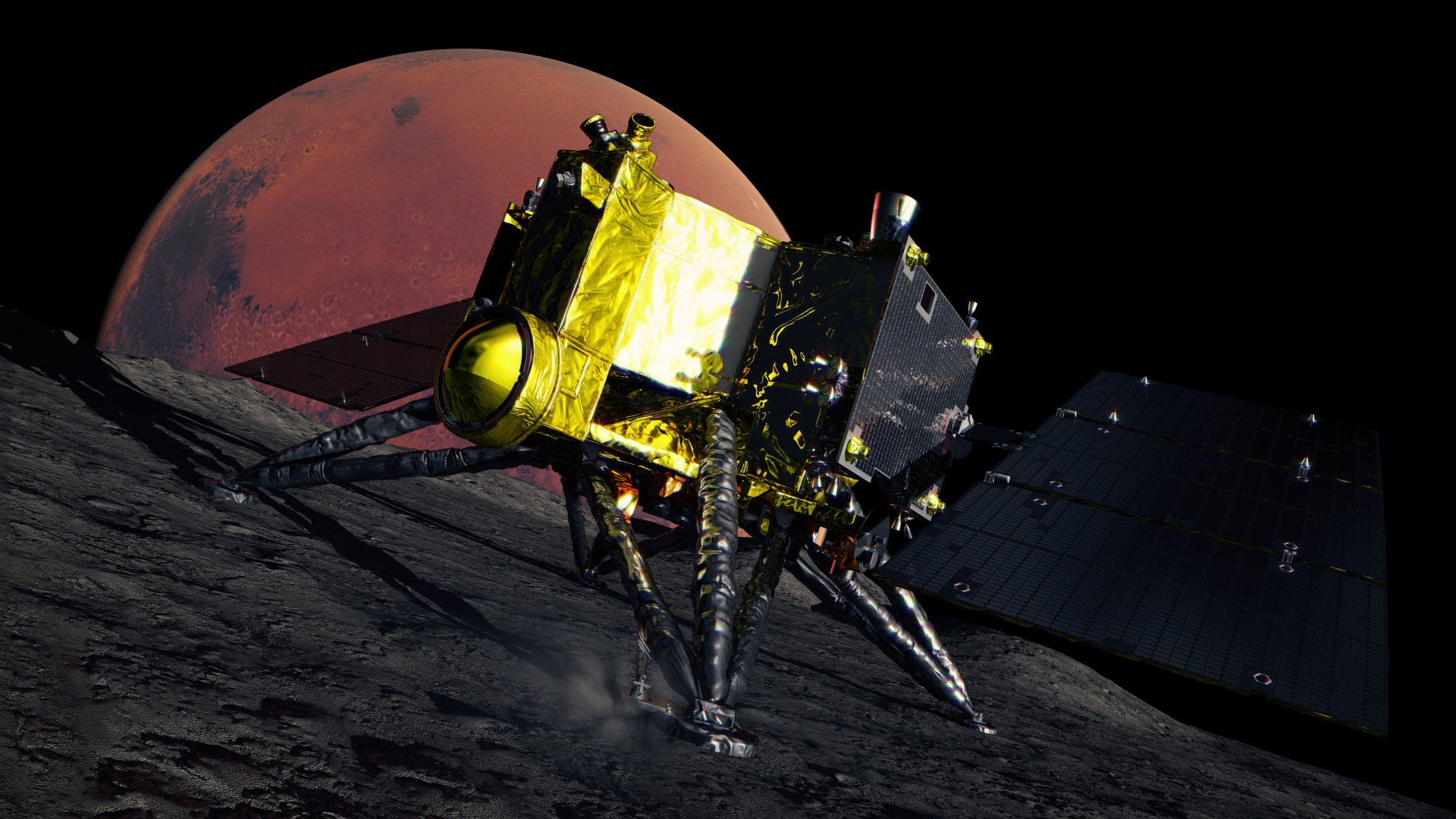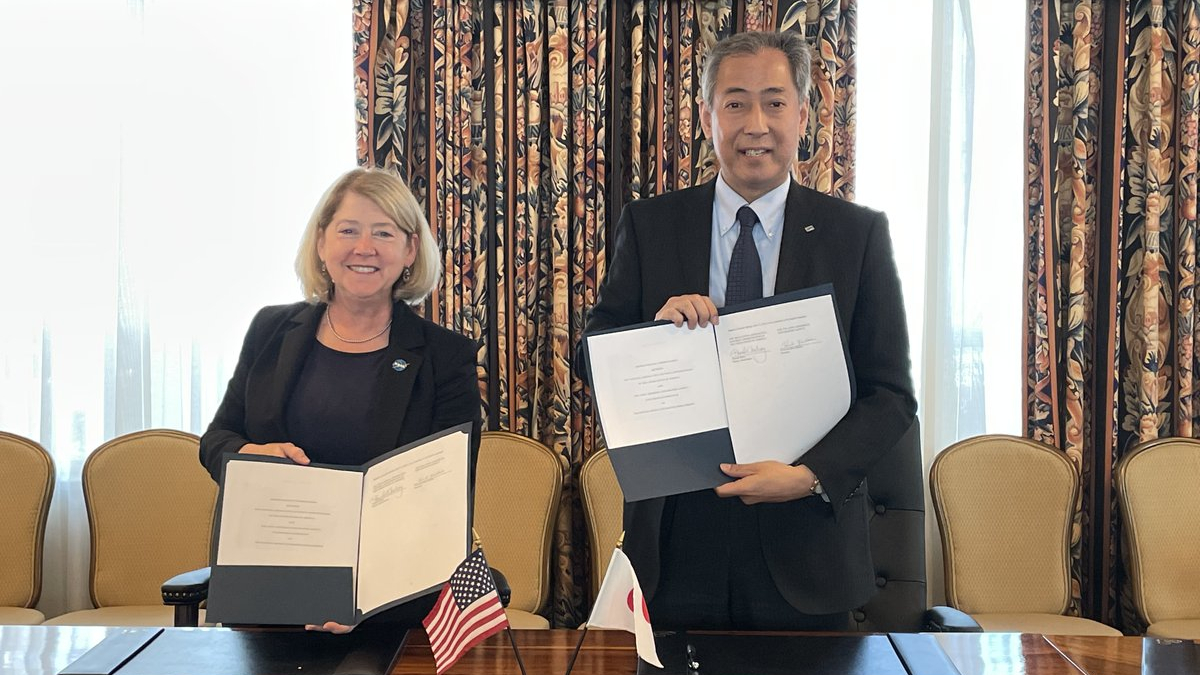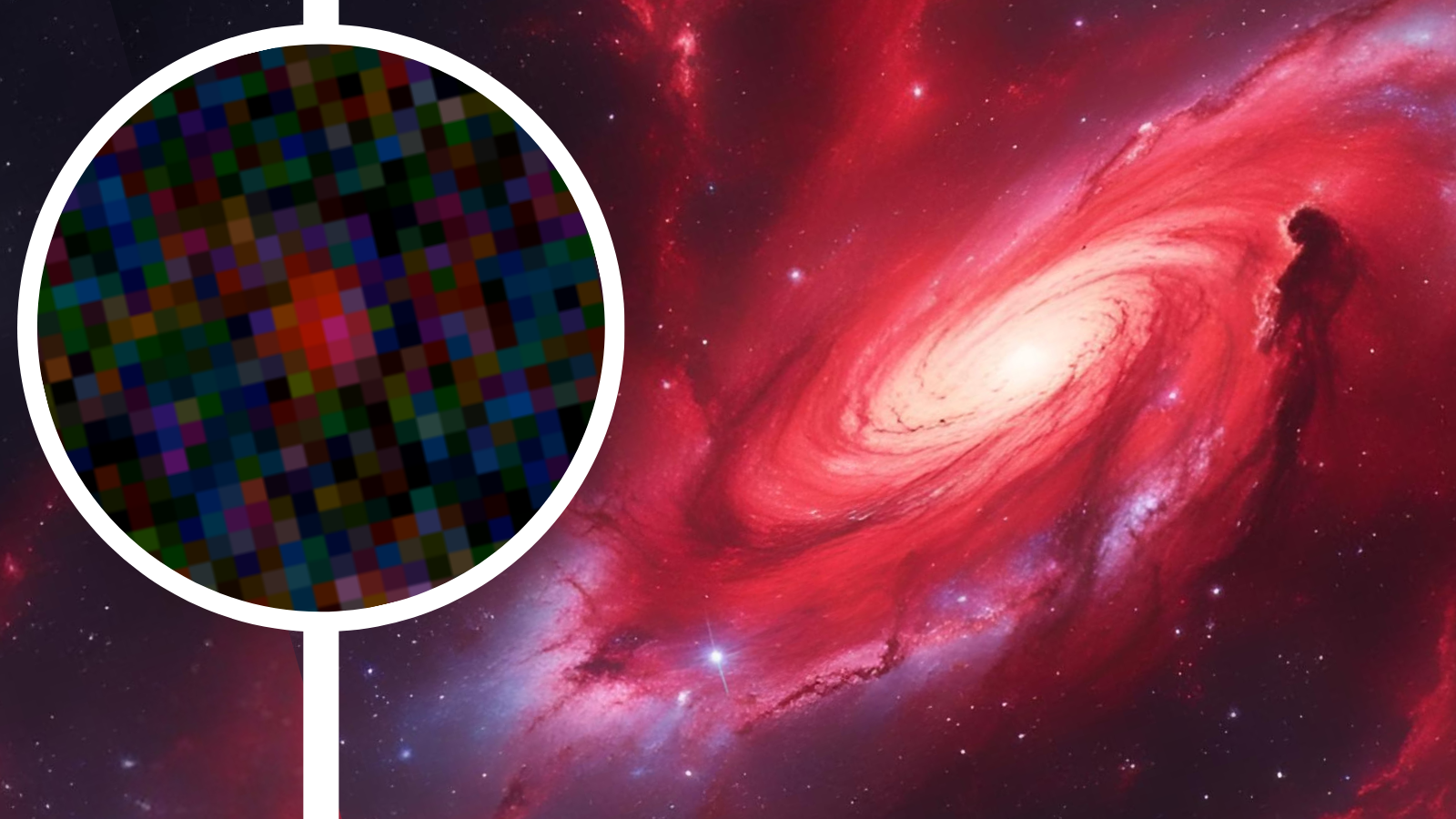NASA joins Japan's mission to collect the 1st samples of Mars moon Phobos
The U.S. agency will provide 2 instruments on Japan's Martian Moons Exploration mission to collect samples of the Mars moon Phobos.

COLORADO SPRINGS, Colorado — NASA is going to a moon of Mars with Japan.
The U.S. space agency on Monday (April 17) signed a memorandum of understanding with the Japan Aerospace Exploration Agency (JAXA) to join Japan's Martian Moon Exploration (MMX) mission to collect samples of the Martian moon Phobos and return them to Earth.
The agreement, which NASA Deputy Administrator Pam Melroy signed with JAXA President Hiroshi Yamakawa here at the 38th Space Symposium, calls for NASA to provide two experiments on the MMX mission when the spacecraft launches to the Red Planet in 2024.
"We've got great partners at JAXA and they are leading this ambitious mission, bringing back the first samples of the Martian moon Phobos," NASA administrator Bill Nelson said in a video message on Twitter on April 16 ahead of the agreement's signing.
"We've had a long history in space together and in this golden age of exploration, the United States and Japan are certainly going to continue to work together. Together, we are going to deepen our knowledge of the solar system. We are going to unlock the mysteries of the universe."
Related: The 7 biggest mysteries of Mars

Under the memorandum of understanding, NASA will provide an experiment called the Mars-moon Exploration with Gamma rays and Neutrons (MEGANE) and a Pneumatic Sampler for the MMX spacecraft. The NASA agreement follows an exchange of notes (meaning, a record of agreement) on April 11 between the governments of Japan and the U.S. to lay the foundation for the Mars mission cooperation.
Get the Space.com Newsletter
Breaking space news, the latest updates on rocket launches, skywatching events and more!
"With the help of international partners such as NASA, JAXA will continue all efforts towards a successful MMX mission," JAXA officials wrote in statement.
Japan's MMX mission is currently scheduled to launch toward Mars in 2024 and enter orbit around the planet in 2025. It will visit both moons of Mars, Phobos and Deimos, but only land on Phobos, the bigger of the two Martian satellites.
MMX will only touch down on Phobos for a few hours to collect samples of the moon. Those samples will then be returned to Earth by 2029, giving scientists their first-ever samples collected directly from Phobos.
JAXA has a successful track record of sample-return missions in our solar system. In 2010, Japan's Hayabusa spacecraft delivered samples from the asteroid Itokawa to Earth. The country's Hayabusa2 probe successfully returned samples of the asteroid Ryugu to Earth in 2020.
Email Tariq Malik at tmalik@space.com or follow him @tariqjmalik. Follow us @Spacedotcom, Facebook and Instagram.
Join our Space Forums to keep talking space on the latest missions, night sky and more! And if you have a news tip, correction or comment, let us know at: community@space.com.

Tariq is the Editor-in-Chief of Space.com and joined the team in 2001, first as an intern and staff writer, and later as an editor. He covers human spaceflight, exploration and space science, as well as skywatching and entertainment. He became Space.com's Managing Editor in 2009 and Editor-in-Chief in 2019. Before joining Space.com, Tariq was a staff reporter for The Los Angeles Times covering education and city beats in La Habra, Fullerton and Huntington Beach. In October 2022, Tariq received the Harry Kolcum Award for excellence in space reporting from the National Space Club Florida Committee. He is also an Eagle Scout (yes, he has the Space Exploration merit badge) and went to Space Camp four times as a kid and a fifth time as an adult. He has journalism degrees from the University of Southern California and New York University. You can find Tariq at Space.com and as the co-host to the This Week In Space podcast with space historian Rod Pyle on the TWiT network. To see his latest project, you can follow Tariq on Twitter @tariqjmalik.
